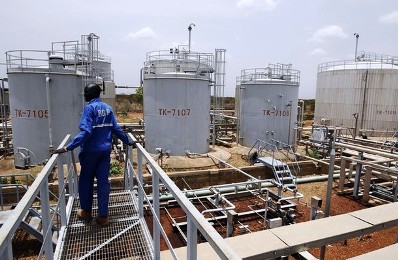South Sudan hopes oil refinery works in four months
March 8, 2017 (JUBA) – South Sudanese government Wednesday said it would start production and delivery of refined oil products from its own refinery after four months.

James Thelweng, the Managing Director of Nilepet said President Kiir assured the company of the commitment of the government and pledged support of the government in the construction.
“It was fruitful meeting. We went to brief the president of the republic on the progress made and to hear from the company constructing the refinery. They (company) have expressed their happiness and appreciated the commitment of the president and the government to support the construction. They also emphasised on the commitment of the company to supply its customers and it will make sure that the quantity will go directly to the citizens of the Country,” said Thelweng.
Meanwhile, Arsen Mudunov, the chief executive officer of Safinat Group announced on Wednesday that the refinery will soon start working and its production will be in the market next June 2017.
He added that Safinat Group will work together with the Nilepet in order to achieve its goals of providing enough fuel in the Country
Mudunov said Safinat group in South Sudan discussed today at State House in Juba the way forward in completing the refinery project in the country.
At the refinery’s planned location, construction is underway. Pipes have been laid and a massive dredging operation has commenced, but the outline of a refinery has yet to emerge.
South Sudan is one of the oil producing countries in the world but it doesn’t have its own oil refinery to fuel its struggling economy. Plunging crude prices have pushed Africa’s youngest economy to the brink of recession.
Energy accounts for about 50% of the gross domestic product, 98% of government revenue and 99% of export earnings.
The government is now racing through its foreign currency reserves, and an alarming financial deficit in its 2016 budget has forced officials to discuss a potential cash infusion with the World Bank.
(ST)
